
More than a quarter of middle-aged women living with ‘metabolically healthy obesity’ – study
Almost one in 10 middle-aged men and more than a quarter of middle-aged women in the UK are “fit but fat”, researchers have said, as they called for more to be done to help people reduce their weight. Academics said that there are large regional differences over levels of “metabolically healthy obesity”, which could be down to different diets or other lifestyle factors as well as ethnic and genetic differences. People who are “fit but fat” are considered to be obese by their body mass index (BMI) score but have none of the complications associated with obesity including abnormal blood sugar levels; high cholesterol; high blood pressures; type 2 diabetes or other signs of heart disease. The UK has similar levels seen in Sweden, Norway and Germany, experts said. The highest proportion of metabolically healthy obesity is observed in France and other Mediterranean countries such as Italy and Israel, experts told the the Annual Meeting of the European Association for the Study of Diabetes. There will always be people living with obesity who seem to be protected against obesity-related cardiometabolic diseases Prof Mattias Bluher One study shows that 8% of men and 27% of women in the UK aged between 40 and 50 are living with “metabolically healthy obesity”. Asked how many people in the UK are affected, Professor Matthias Bluher, of the University of Leipzig and Helmholtz Centre Munich in Germany, said: “The (UK) is very similar to situation Sweden, Norway and Germany. “There are populations in Micronesia or Asian populations where it is down to 2-5% only. “Some populations may be, despite large amounts of adipose tissue, better protected against comorbidities and Caucasian populations belong to those.” Prof Bluher said that healthy obesity is seen in a number of premenopausal women. It comes as Prof Bluher called for better weight management programmes for people who fit the profile. He pointed to previous work which suggests people who are “healthy obese” have a higher risk of coronary heart disease, cerebrovascular disease and heart failure compared to their in a normal weight range. “There will always be people living with obesity who seem to be protected against obesity-related cardiometabolic diseases,” he told the conference. “The concept that metabolically healthy obesity affected people may not benefit from weight loss strategies has been challenged by recent data. “A timely and personalised treatment of obesity should also be recommended to people living with healthier obesity.” Read More Charity boss speaks out over ‘traumatic’ encounter with royal aide Ukraine war’s heaviest fight rages in east - follow live Jonnie Peacock on Strictly Come Dancing representation: ‘It’s important to break people’s perceptions’ What you need to know about depression during menopause – as Carol Vorderman opens up Autumn pests to look out for and how to get rid of them in your home and garden
2023-10-04 16:56

Grand jury indicts father of Madeline Kingsbury's children with first-degree murder charges in her death
A Minnesota grand jury has indicted the father of Madeline Kingsbury's two children with first-degree murder in her death and accused him of engaging in a pattern of domestic abuse, roughly four months after her remains were found near a highway.
2023-10-04 09:54
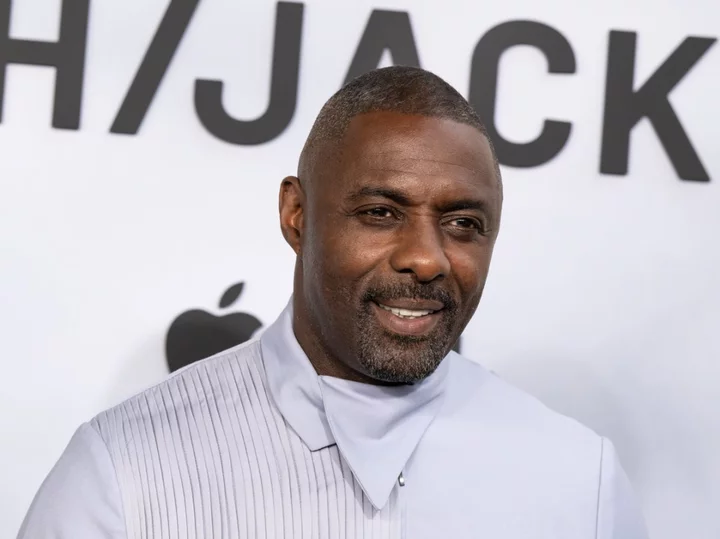
Idris Elba reveals he’s been in therapy for a year due to ‘unhealthy habits’
Idris Elba has revealed that he’s been in therapy for the past year because of “unhealthy habits” affecting his personal life. The British actor, 51, recently opened up about his mental health on the Changes with Annie Macmanus podcast. Speaking on the podcast released on 2 October, Elba said that he’s been in therapy for about a year. “In my therapy I’ve been thinking a lot about changing,” he said. “It’s not because I don’t like myself or anything like that. It’s just that I have some unhealthy habits that have just really formed.” “I work in an industry that I am rewarded for those unhealthy habits,” Elba added. The Luther star admitted that he’s “a workaholic” and explained how taking on new work projects has had a negative impact on his daily life. “I’m a workaholic. I’m an absolute workaholic,” he said. “And that isn’t great for life, generally. Nothing that’s too extreme is good. Everything needs balance.” However, The Wire star acknowledged that the entertainment industry rewards “someone that can go: ‘I’m not going to see my family for six months.’ And I’m in there grinding and making a new family and then leave them.” Despite admitting that he’s a workaholic, he noted that what makes him most “relaxed” is surprisingly working. Elba, who often moonlights as a DJ, went on to share that his at-home studio only further fuels his workaholic tendencies. He continued: “I could work 10 days on a film, underwater sequences holding my breath for six minutes, and come back and sit in [the studio] and [feel relaxed], more so than sitting on the sofa with the family - which is bad right? “This is the part where I’ve got to normalise what makes me relaxed, it can’t be all work,” he added. In 2020, a study of 2,000 UK office workers found that four in 10 British adults admitted that they’re workaholics. The study showed that one in six workers frequently spends more than 11 hours a week working when they are away from the office, such as checking emails and making calls. Plus, only three per cent of workers surveyed said they leave work on time every day. In the study, some of the signs of a workaholic included never taking a lunch break, working on weekends, and always being the last one to leave the office. Ignoring family can also be a sign of working too much, as one in five adults admitted they’d take a work call or check emails while with their family. Elba is married to Canadian model Sabrina Dhowre. The two began dating in 2017 and were engaged in February 2018. They tied the knot on 26 April 2019 in Marrakesh. He is also the proud father to two children. Elba shares daughter Isan, born in January 2002, with ex-wife Kim Norgaard and son Winston, born in April 2014, with ex-girlfriend Naiyana Garth. Read More Idris Elba says ‘disgusting’ race discourse put him off James Bond role David Beckham explains why he never sought therapy after 1998 World Cup match left him ‘depressed’ Dove Cameron opens up about feeling ‘incredibly suicidal’ to destigmatise depression Having an overweight pet could cost owners over £1,000 in vets’ bills What you need to know about depression during menopause – as Carol Vorderman opens up Linda Evangelista describes relationship with Gerald Marie as a ‘MeToo marriage’
2023-10-04 00:27
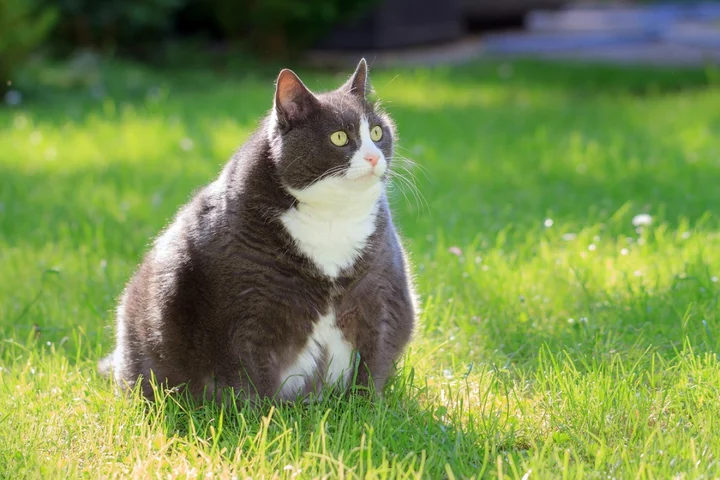
Having an overweight pet could cost owners over £1,000 in vets’ bills
Having an overweight pet could cost owners £1,500 in vets’ bills per visit, claims data has revealed. Common health problems caused by excessive weight include cruciate ligament injuries, urinary tract disease, diabetes and arthritis. Addressing cruciate ligament injuries can mean swallowing a whopping bill of £1,578.28, and urinary tract disease costs for cats are skyrocketing to a jaw-dropping £752.06. Data from pet insurer ManyPets shows, on average, pet owners are forking out £682.65 for a trip to the vets for diabetes, while arthritis costs are coming to £476.61. However, 51 per cent of cat and dog owners are already concerned about their pets’ weight, a separate poll of 2,000 pet owners found. And nearly one in five (18 per cent) with a cat or dog could encounter these bills soon as they believe their pet already is carrying more weight than it should. With almost a fifth (19 per cent) admitting they are already shelling out more to tackle their pets’ fluctuating size. The research was commissioned as part of the ManyPets ‘Why Weight?’ report and launch of its Obesity Learning Hub. Steven Mendel, chief executive and co-founder of the pet insurer, said: “We understand it can be difficult to resist rewarding pets with extra treats, and heart-breaking to say no to them when they’re asking for more food. “But, with obesity associated health problems becoming more and more prevalent, we urge pet parents to think twice to save their pets. “We’re proud to have launched our Obesity Learning Hub to offer tips and veterinary approved advice for pet parents everywhere.” The research went on to find, with the rising cost of living still looming large for many pet owners, 22 per cent have been forced to make cutbacks to their pet’s lifestyle. Almost half (49 per cent) of these are now opting for lower quality brands of food, and 37 per cent have reduced their spend on healthcare. But 88 per cent believe they would be able to recognise the signs a pet is potentially getting to an unhealthy weight, yet only 31 per cent regularly keep an eye on their pet’s weight. Moreover,39 per cent will only visit the vets in an emergency – all of which point to an increase in weight going unchecked. In a bid to help keep weight down, 76 per cent do try to keep their four-legged friends as active as possible, while 75 per cent limit the number of treats or table scraps they give out. The study, carried out via OnePoll, found of those with an overweight pet, 22 per cent feel as if their cat or dog is ‘always hungry’. While a puzzled 19 per cent scratch their heads over their pet’s weight as they don’t think they eat an excessive amount. Steven Mendel added: “While many pet owners believe it should be straightforward to spot if their cat or dog is putting on weight – it’s often easier said than done. “In most cases, gaining weight is very gradual, meaning it can be trickier to identify - especially if pets are not attending the vet regularly. “We’re hopeful that with the right course of action and identifying the signs early, longer term pet health problems can be avoided in the future.” Read More Cat owner reunited with pet Tux after emotional Lyft ride saga Dogs’ facial markings could play a role in how close they are with owners Moment cat stuck inside boat’s hull after fire is rescued by firefighters Cat owner reunited with pet Tux after leaving her in a Lyft What you need to know about depression during menopause – as Carol Vorderman opens up Linda Evangelista describes relationship with Gerald Marie as a ‘MeToo marriage’
2023-10-03 21:56
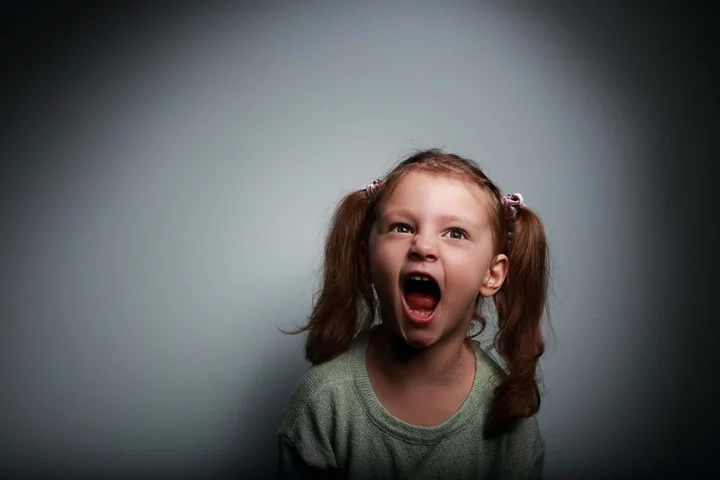
How can I tell if my child has ADHD?
ADHD awareness is on the rise – yet it can still sometimes be tricky for parents and carers to know whether their child is affected or not. It’s estimated that 5 per cent of children in the UK have ADHD, according to the charity ADHD UK. And while the condition has previously been stereotypically associated with ‘disruptive’ and ‘naughty’ behaviour, particularly in young boys, it is now understood to be far more complex and nuanced than that. “Attention deficit hyperactivity disorder, or ADHD, is a neurodevelopmental condition that impacts someone’s attention, their levels of hyperactivity and impulsivity,” explains Dr Seb Thompson, consultant clinical psychologist at Cygnet Health Care. “Typically when someone has ADHD, they tend to struggle with their attention, with hyperactivity and with impulsivity – although it is possible to just struggle with symptoms from one of those,” Thompson adds. Of course, no child has ‘perfect’ concentration all the time, and many kids can have impulsive moments or bouts of being a bit hyperactive. So, how do you know if they’re actually showing signs of ADHD? To mark October’s ADHD Awareness Month, we talked to some experts… ADHD does not always look the same There are some common patterns that crop up with ADHD, however it can also affect individuals very differently. So, if another child has similar behavioural traits to yours and has had a diagnosis, that does not necessarily mean your child has ADHD too. At the same time, children could have very different behavioural traits, yet both have ADHD. “Every child with ADHD will probably struggle with a unique set of difficulties,” explains Georgia Chronaki, senior lecturer in developmental neuroscience at University of Central Lancashire. “[For example] One child might struggle with paying attention in class, another may struggle with managing their emotions.” They find being still and quiet really hard It may be a stereotype, but uncontrollable fidgeting could be an indicator of possible ADHD. Thompson explains: “The hyperactivity and impulsivity difficulties associated with ADHD could include being unable to sit still without fidgeting, excessive restlessness, finding the quiet to be uncomfortable, difficulty engaging in tasks quietly, difficulties in turn-taking, impulsively saying or doing things without thinking through consequences, as well as a tendency not to consider the risks of behaviour.”Your child is often forgetful and loses things easilyThompson says if they are “frequently misplacing or losing items, being easily distracted, appearing to be daydreaming, and having difficulties remembering to do tasks and difficulties following through with instructions”, it may be linked with ADHD. You can tell your child is struggling If your child seems to be finding things a struggle, this could be a big indicator. “Imagine really wanting to pay attention to a conversation that is happening but your brain is not letting you,” says Thompson. “Imagine really wanting to focus on your homework, but your brain is not letting you. Imagine really wanting to sit and watch a TV programme, or sit and eat a meal, or sit and relax and your brain is not letting you. “The world can be a very frustrating place for young people with ADHD, particularly if they do not understand why their brain works in the way it does.” They seem down or depressed Thompson adds that kids with ADHD “can often suffer with low self-esteem, depression and anxiety”. He explains: “Young people who get frustrated by their difficulties may stop trying at school, or lose interest in their hobbies because they can’t sustain the attention to take part.” Seeking advice If any of these things are impacting your child’s wellbeing and making things seem hard for them, or if you are concerned they may have ADHD, then it may be worth seeking professional support. Diagnoses are typically given by specialist ADHD assessment teams, and referrals tend to be made via schools or Child and Adolescent Mental Health Services (CAMHS). Read More ‘I think it’s wise if you pipe down’: Man inundated with criticism after judging mum on her phone Sleepy tea, counting backwards and dense earplugs: Inside the lives of insomniacs ‘I like listening to humans talk’: Meet the podcast fans who can’t stand silence Charity boss speaks out over ‘traumatic’ encounter with royal aide Ukraine war’s heaviest fight rages in east - follow live
2023-10-03 15:23
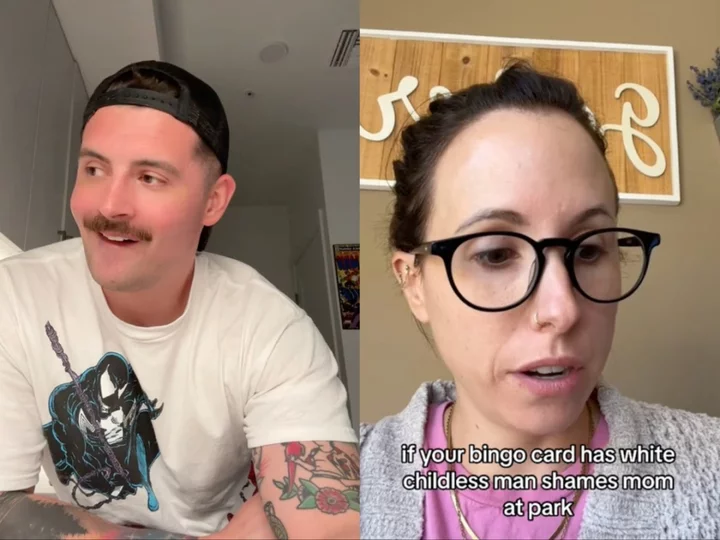
‘I think it’s wise if you pipe down’: Man inundated with criticism after judging mum on her phone
A man has been receiving backlash for giving his opinions on parenting, despitehaving no children of his own. Mario Mirante took to TikTok to share a video about what he observed when he watched a mother and her son at a park. “Please watch the whole video before you comment. Thanks,” he captioned the clip, after the original was taken down. “The kid is just playing quietly, not being annoying. I don’t hear a peep from him, he’s just doing his thing on the playground,” Mirante said. “The mom the entire time is on her phone, staring right down at her screen. Doesn’t look up one time.” He explained that as he walked by, he noticed the child sitting on top of the slide. “I hear: ‘Hey mom, watch. Watch, Mom,’” Mirante recalled. “And at the top of her lungs, shrieking like a Velociraptor, this mother screams: ‘One second!!!’” The TikToker claimed the mother yelled so loudly that he stopped abruptly to hear what the problem was. When her child heard his mother scream, Mirante claimed that he looked “terrified” and confused, thinking that he upset his mother. “He wasn’t doing anything wrong,” Mirante said. “Mom never looks up from the screen as the kid goes down [the slide].” Mirante added that he is most definitely “judging” the mother based on what he saw in those few minutes. “When your kid isn’t doing something wrong, or in danger, you probably shouldn’t scream at them. It might have some traumatic effects in the future,” he declared, before asking: “Are you guys that attached to your phones?” @mariomirante Please watch the whole video before you comment. Thanks ♬ original sound - Mario Mirante He explained that his original video was taken down due to the amount of negative comments, with people telling him he shouldn’t judge a mother when he is not a parent himself. According to Mirante, some TikTokers told him that “maybe the mom needs a break and she takes him to the park to get that break” or that the mother could’ve been a single mom. Even content creator Abby Eckel stitched Mirante’s TikTok, explaining in a separate video that he has never experienced being the default parent. “A default parent is typically one who is ‘first in line’ when it comes to caring for children, child-related responsibilities, or home-related tasks,” clinical psychologist Amber Thornton wrote in Psychology Today. “If you have never been the default parent, and you don’t know what it’s like to be constantly needed all day, every day if you’re not the one consistently and constantly regulating your child’s emotional needs while also having to regulate your own, which also likely means that you’re having to relearn how to do that because you weren’t taught that as a child,” Eckel said in her TikTok video. “I think it’s wise if you pipe down.” @itsme_abbye If youve never been a parent, please sit down. ♬ original sound - Marriage & Motherhood Many people agreed with Mirante’s video, while others continued to disagree in the comments section. “I am a single mom, I 100 per cent agree with you. Kids remember who is actually PRESENT with them, not glued to their phone, the TV etc etc,” one commenter wrote. “That feeling of ‘but what did I do wrong?’ will stay with that child for a long time. It can be very damaging,” another comment read. “My kid used to say ‘mom’ every five secs. It was a joke in the family. I’d lose my mind about 2 per cent of the time about it. You just caught a bad moment,” one commenter pointed out. Another person wrote: “I thought the same way as you. And then I became a parent. Until you become a parent, you do not understand the struggle.” The Independent has contacted Mirante for comment. Read More The tyrannical fear of being ‘left on read’ is wrecking romance Bride warms hearts after having 104-year-old grandfather serve as ring bearer at her wedding Mother’s TikTok calling out parenting ‘double-standards’ resonates with women everywhere Schoolboy almost dies from swallowing magnets for TikTok challenge Woman shares honest review of New York City apartment TikTok mom slammed after making 5-year-old son run in 104 degree heat
2023-10-03 14:29
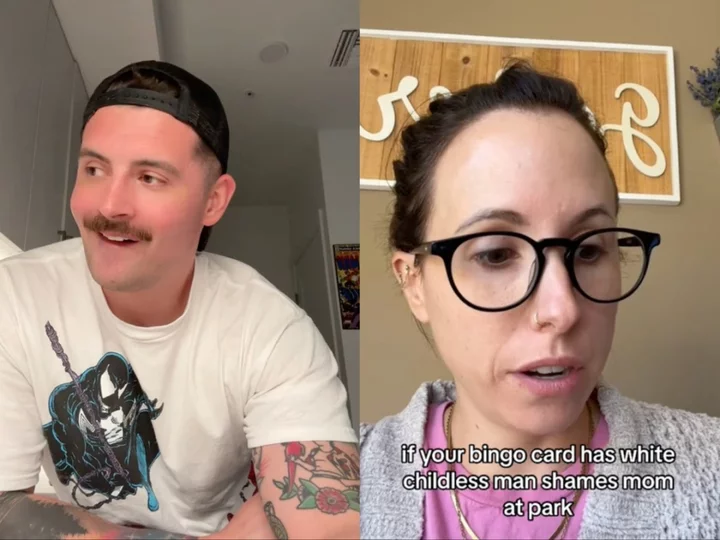
Man with no children sparks debate after ‘judging’ mother who was on her phone at a park
A man has been receiving backlash for giving his opinions on parenting, despite not having any children. Mario Mirante took to TikTok to share a video about what he observed when he watched a mother and her son at a park. “Please watch the whole video before you comment. Thanks,” he captioned the clip, after the original was taken down. “The kid is just playing quietly, not being annoying. I don’t hear a peep from him, he’s just doing his thing on the playground,” Mirante said. “The mom the entire time is on her phone, staring right down at her screen. Doesn’t look up one time.” He explained that as he walked by, he noticed the child sitting on top of the slide. “I hear: ‘Hey mom, watch. Watch, Mom,’” Mirante recalled. “And at the top of her lungs, shrieking like a Velociraptor, this mother screams: ‘One second!!!’” The TikToker claimed the mother yelled so loudly that he stopped abruptly to hear what the problem was. When her child heard his mother scream, Mirante claimed that he looked “terrified” and confused, thinking that he upset his mother. “He wasn’t doing anything wrong,” Mirante said. “Mom never looks up from the screen as the kid goes down [the slide].” Mirante added that he is most definitely “judgeing” the mother based on what he saw in those few minutes. “When your kid isn’t doing something wrong, or in danger, you probably shouldn’t scream at them. It might have some traumatic effects in the future,” he declared, before asking: “Are you guys that attached to your phones?” @mariomirante Please watch the whole video before you comment. Thanks ♬ original sound - Mario Mirante He explained that his original video was taken down due to the amount of negative comments, with people telling him he shouldn’t judge a mother when he is not a parent himself. According to Mirante, some TikTokers told him that “maybe the mom needs a break and she takes him to the park to get that break” or that the mother could’ve been a single mom. Even content creator Abby Eckel stitched Mirante’s TikTok, explaining in a separate video that he has never experienced being the default parent. “A default parent is typically one who is ‘first in line’ when it comes to caring for children, child-related responsibilities, or home-related tasks,” clinical psychologist Amber Thornton wrote in Psychology Today. “If you have never been the default parent, and you don’t know what it’s like to be constantly needed all day, every day if you’re not the one consistently and constantly regulating your child’s emotional needs while also having to regulate your own, which also likely means that you’re having to relearn how to do that because you weren’t taught that as a child,” Eckel said in her TikTok video. “I think it’s wise if you pipe down.” @itsme_abbye If youve never been a parent, please sit down. ♬ original sound - Marriage & Motherhood Many people agreed with Mirante’s video, while others continued to disagree in the comments section. “I am a single mom, I 100 per cent agree with you. Kids remember who is actually PRESENT with them, not glued to their phone, the TV etc etc,” one commenter wrote. “That feeling of ‘but what did I do wrong?’ will stay with that child for a long time. It can be very damaging,” another comment read. “My kid used to say ‘mom’ every five secs. It was a joke in the family. I’d lose my mind about 2 per cent of the time about it. You just caught a bad moment,” one commenter pointed out. Another person wrote: “I thought the same way as you. And then I became a parent. Until you become a parent, you do not understand the struggle.” The Independent has contacted Mirante for comment. Read More Woman filters apartments by price but only parking spaces are in her budget Bride warms hearts after having 104-year-old grandfather serve as ring bearer at her wedding Mother’s TikTok calling out parenting ‘double-standards’ resonates with women everywhere Schoolboy almost dies from swallowing magnets for TikTok challenge Woman shares honest review of New York City apartment TikTok mom slammed after making 5-year-old son run in 104 degree heat
2023-10-03 06:20

The curious status of the vasectomy in the UK in 2023: ‘Young, none and done’
In the fallout from last year’s overturning of Roe v Wade, the legislation that secured abortion rights in the US, a great many young American men simultaneously did a quite radical thing. They took to social media to intimately document themselves getting a vasectomy, to prove it was a simple and painless act. One was vegan bodybuilder and influencer Brian Turner, who was certain from around the age of 22 that he’d never want children. He acted on his stance, aged 30, and made some genuinely great content in the process. “The reaction was positive,” he tells me. “A few people commented in disbelief, calling me crazy names or saying, ‘You’re no longer a man – you chopped your balls off.’ But they don’t bother me. I have a thick skin.” It started a global discussion on vasectomies, chiefly around how men can step up and take the burden of contraception away from their female partners forever. Adam, a 35-year-old father of two from Brighton, had the same desire around the same time: “I had a growing guilt about never really fully taking responsibility for contraception. Apart from condoms, all the solutions are for women, and they all seem to have pretty gnarly side effects. It seemed like the decent thing to do, to try to take on the responsibility.” But what of younger British men, who absolutely, definitely don’t want children, who know they want to be what I call “none and done”? For them, although the hurdles are curiously higher and their reasoning more diverse, the same desire to make an informed decision about their body exists. Britain has never had a big national conversation about the vasectomy, the way America – a place where some states even offered them for free in the wake of the Supreme Court’s historic verdict – clearly has in recent years. “The vasectomy was thought to be illegal here until around the Sixties, and only came on the NHS in the early Seventies,” explains Dr Georgia Grainger, a historian of vasectomy. Before this, the concept of men choosing to sterilise themselves was – in her words – “murky”, owing to many of the key doctors and campaigners evangelising the process also being supporters of eugenics. It was actually the beloved broadcaster Michael Parkinson who, in Grainger’s eyes, did the most to burst bubbles on the subject. “He was open about having a vasectomy back in 1972 when it was still very uncommon. He did an interview about it that was on the front page of the first issue of Cosmopolitan magazine. It definitely brought awareness and also dispelled some myths – that it would affect a man’s masculinity or even cause things like a higher-pitched voice”. While the procedure has undoubtedly become more common, I’m not sure that we as a society know a huge amount more about it than in the Seventies. The good news for men is that the procedure is more successful than ever. Doctors reported in March this year that, after surveying 94,000 patients, only 0.2 per cent of men get what’s known as “chronic scrotal pain”. It is generally seen as being more than 99 per cent effective as a form of birth control. The bad news is that there’s still a lot of misinformation around it – from daft macho ideas that it decreases your testosterone levels or sex drive (it doesn’t) to the more assimilated notion you hear a lot: that, similar to an intrauterine device (IUD) with women, it’s easy to undo (it isn’t sadly, not all reversals work, they get less successful over time plus they’re significantly more expensive too). In reality, a vasectomy is quick, carried out under local anaesthetic and takes around 15 minutes. Today, most are what’s known as “scalpel-free”, meaning the incision is so tiny (only 2-4mm) that it doesn’t require stitches. The two tubes that carry sperm from your testicles are severed (hence the colloquial term “the snip”) and closed. Post-surgery, men are encouraged to rest for a couple of days, to apply ice packs to their scrotum and – if possible – wear a jock strap that’s slightly too small to ease any swelling. And that’s it. “The most common question I get asked is, “Do you still cum?’”, says Gregory, who had a vasectomy in January. “It’s funny how so many people think you’ll never ejaculate again after a vasectomy. The truth is: the difference isn’t noticeable.” In fact, sperm is still produced, but it’s discharged internally and absorbed by the membrane around the epididymis (the coiled tube behind each testicle) in a totally natural process. The body still produces semen, which is ejaculated but it no longer contains sperm – although it’s said that a man needs to ejaculate on his own a good number of times before the presence of sperm totally vanishes. “I did hear rumours about ‘40 w***s’,” confirms Gregory, “but I just stuck with the doctor’s deadlines and the sperm test came back clear four months later.” Yet, while the procedure has some fringe areas of conjecture, one important aspect is dramatically less well known: men – especially young men – won’t automatically be granted a vasectomy if they choose to have one. There’s huge variation in the UK, based on regional NHS procedures and resources, plus, “a lot depends on the individual doctor, unfortunately” according to Grainger. Some areas don’t offer them, meaning having to go private and pay an often prohibitively expensive £600. But even simply having the autonomy to choose is also a grey area. “A lot of younger men, especially if they’re unmarried or don’t have children, really have to push to get a doctor to take them seriously,” says Grainger. “We often think of that kind of pushback as being something women get within their reproductive healthcare, but I’ve heard a lot of men share their experiences of having to go to multiple doctors to find one to agree to refer them for a vasectomy, just because they ‘might change their mind’.” This seems like quite a significant flashpoint, given that all the urologists we spoke to confirmed a definite movement of younger people wanting the snip. “Traditionally, the typical age of a man seeking a vasectomy would be 35-40 years old,” states Dr Peter Quinn who performs the procedure for Vasectomy NI. “However we are finding more and more younger men in their twenties are looking for a permanent method of contraception.” Luckily, I didn’t encounter a single man who had any regrets or who had “changed their mind”. What I found instead were more men making an informed choice around their own reproductive health, from a variety of backgrounds, viewpoints and life situations. Some for example, like Simon, are single and dating. He had his tubes snipped aged 28, while in a long-term relationship that subsequently ended. Does he have any regrets? “Absolutely not – I really want to make that clear.” Despite being from a big family with plenty of cousins whom he loves, he’s felt like he’s known he never wanted children himself “from as far back as my teens”. Now aged 30, he’s starting to date again. He doesn’t declare his snipped status on the dating app he uses, but does bring it up quickly, in case there’s any awkward confusion. “Not wanting to have kids is a pretty big part of who I am, I feel like I talk about it all the time anyway without needing to advertise it.” Ray, who is also young, single and snipped feels “it’s a flex” when it comes to being on the dating scene. Aside from being a talking point and a sign of emotional maturity, crucially it “finalises that aspect of ‘maybe he’ll change his mind’. which I have experienced in relationships in the past. I’ve been very clear I don’t want children previously, but nobody fully believes that when you tell them. They might put it to one side and say ‘let’s think about that later’.” Ray also has no regrets. Dr Nick Demediuk has performed more than 50,000 vasectomies in his career. The name of his clinic in Australia says it all: Dr Snip. His perspective over 34 years of performing a life-changing operation is thus pretty unique and his recommendation is unequivocal: “It’s the simplest and easiest form of permanent contraception that responsible men can use to contribute to their relationships and the planet.” For him, one of the key reasons behind the growth in younger men taking up vasectomies has been “issues related to climate change”, with a significant subgroup of “hard-line vegans”. There’s not enough resources for people alive on earth today – it feels almost a bit selfish for us to contribute to that scenario Nat and Charlie* This chimes with Nat and Charlie*, a male/female couple who moved from a big city to the English countryside this year, in part motivated by a desire to give their beloved trio of cats more space. Having been on the fringes of eco-activism since university, their decision – raised initially by Nat and enthusiastically supported by Charlie – to have the procedure when Nat was 29 was very much informed by the climate emergency. “We both feel like we’re loving people and capable of lots of love,” says Charlie “but we both felt inside of ourselves that we never wanted to have children, especially in the world as it is today.” Citing the extreme weather events all over Europe this summer as just one example, they fundamentally worry about the world being safe enough to bring kids into, as well as the feeling that “there are not enough resources for people alive on earth today – it feels almost a bit selfish for us to contribute to that scenario.” They stop short of endorsing the emerging philosophy of anti-natalism, a controversial belief first advanced by South African philosopher David Benatar that sees all human reproduction as immoral, in part due to the climate emergency but also because life is inevitably tinged with suffering and pain. But, in choosing not to have children out of concern for the environment, they find themselves at one end of an extreme and widening political spectrum. The same week I speak to them, Hungary’s leader Viktor Orban was holding the fourth of his biannual Demographic Summits, which – with Italy’s leader Georgia Meloni, religious leaders and right-wing thinkers in tow – aimed to solve what’s seen as a crisis in underpopulation in Europe. Encouraging more babies via defence of traditional family values feels a world away from the outlooks of Nat, Charlie and the many others taking up the vasectomy as a way of definitely not having kids on principle. As if we didn’t have enough 50-50 splits in society today, an increasing number of people believe we need fewer children while an equal number believe we need more. Britain in 2023 therefore seems conflicted between two worlds – the privatised freedom of America where a young, non-parent like Brian Turner is waved through (“I talked to my GP and she said, ‘All good’ and referred me straight away”) and a more prohibitive or simply untrusting mindset that looks at a young man and says, “Hmm, go away and think about it a while.” Perhaps if we want young men in society to play a more positive, active role, maybe they need to be trusted with their own bodily autonomy first? *Names have been changed Read More No music, no ball games, no fun: society is wiping out play ‘I was really struggling to get it up’: Why younger men are turning to Viagra I couldn’t climax, so I let ‘big testosterone’ take me for a ride Woman prepares hamper basket as her husband’s vasectomy gift Why taking a mental health day could be bad… for your mental health What the world’s happiest children tell us about where Britain is going wrong
2023-10-02 15:49
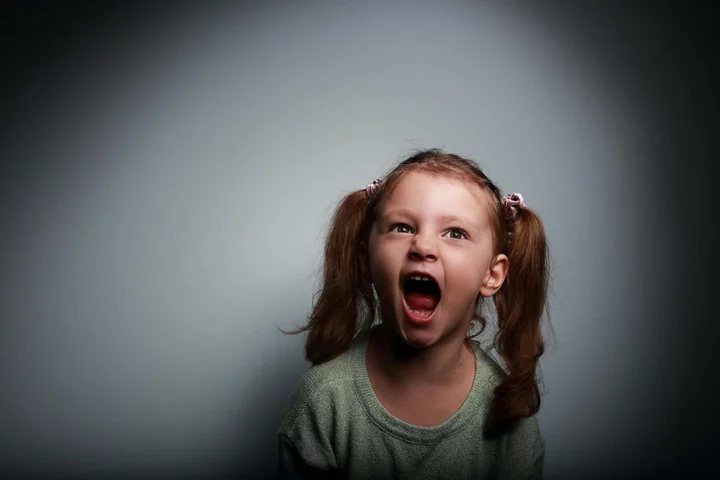
Does my child have ADHD or are they just a livewire?
ADHD awareness is on the rise – yet it can still sometimes be tricky for parents and carers to know whether their child is affected or not. It’s estimated that 5% of children in the UK have ADHD, according to the charity ADHD UK. And while the condition has previously been stereotypically associated with ‘disruptive’ and ‘naughty’ behaviour, particularly in young boys, it is now understood to be far more complex and nuanced than that. “Attention deficit hyperactivity disorder, or ADHD, is a neurodevelopmental condition that impacts someone’s attention, their levels of hyperactivity and impulsivity,” explains Dr Seb Thompson, consultant clinical psychologist at Cygnet Health Care. “Typically when someone has ADHD, they tend to struggle with their attention, with hyperactivity and with impulsivity – although it is possible to just struggle with symptoms from one of those,” Thompson adds. Of course, no child has ‘perfect’ concentration all the time, and many kids can have impulsive moments or bouts of being a bit hyperactive. So, how do you know if they’re actually showing signs of ADHD? To mark October’s ADHD Awareness Month, we talked to some experts… ADHD does not always look the same There are some common patterns that crop up with ADHD, however it can also affect individuals very differently. So, if another child has similar behavioural traits to yours and has had a diagnosis, that does not necessarily mean your child has ADHD too. At the same time, children could have very different behavioural traits, yet both have ADHD. “Every child with ADHD will probably struggle with a unique set of difficulties,” explains Georgia Chronaki, senior lecturer in developmental neuroscience at University of Central Lancashire. “[For example] One child might struggle with paying attention in class, another may struggle with managing their emotions.” They find being still and quiet really hard It may be a stereotype, but uncontrollable fidgeting could be an indicator of possible ADHD. Thompson explains: “The hyperactivity and impulsivity difficulties associated with ADHD could include being unable to sit still without fidgeting, excessive restlessness, finding the quiet to be uncomfortable, difficulty engaging in tasks quietly, difficulties in turn-taking, impulsively saying or doing things without thinking through consequences, as well as a tendency not to consider the risks of behaviour.”Your child is often forgetful and loses things easilyThompson says if they are “frequently misplacing or losing items, being easily distracted, appearing to be daydreaming, and having difficulties remembering to do tasks and difficulties following through with instructions”, it may be linked with ADHD. You can tell your child is struggling If your child seems to be finding things a struggle, this could be a big indicator. “Imagine really wanting to pay attention to a conversation that is happening but your brain is not letting you,” says Thompson. “Imagine really wanting to focus on your homework, but your brain is not letting you. Imagine really wanting to sit and watch a TV programme, or sit and eat a meal, or sit and relax and your brain is not letting you. “The world can be a very frustrating place for young people with ADHD, particularly if they do not understand why their brain works in the way it does.” They seem down or depressed Thompson adds that kids with ADHD “can often suffer with low self-esteem, depression and anxiety”. He explains: “Young people who get frustrated by their difficulties may stop trying at school, or lose interest in their hobbies because they can’t sustain the attention to take part.” Seeking advice If any of these things are impacting your child’s wellbeing and making things seem hard for them, or if you are concerned they may have ADHD, then it may be worth seeking professional support. Diagnoses are typically given by specialist ADHD assessment teams, and referrals tend to be made via schools or Child and Adolescent Mental Health Services (CAMHS). Read More Charity boss speaks out over ‘traumatic’ encounter with royal aide Ukraine war’s heaviest fight rages in east - follow live Naomi Campbell on the catwalk at Sarah Burton’s final Alexander McQueen show This is how your make-up needs change as you age Victorian dahlia show recreated at Stonehenge with thousands of flowers
2023-10-02 14:55
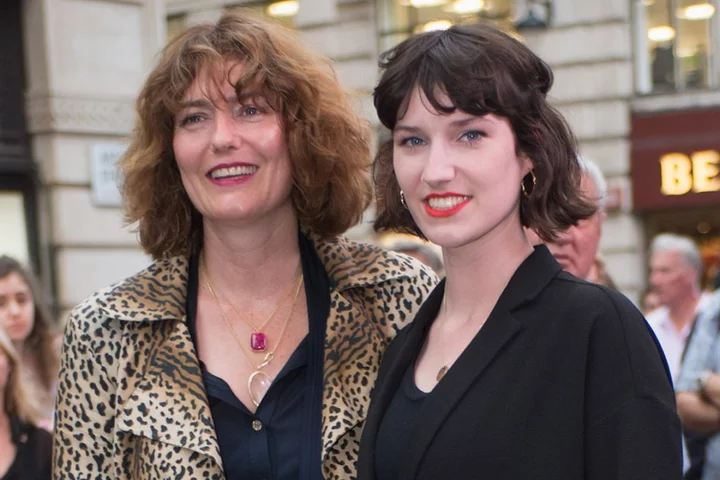
The Split star Anna Chancellor announces the death of artist daughter Poppy, aged 36
The Split and Four Weddings and a Funeral star Anna Chancellor has announced the death of her only daughter, Poppy, aged 36. On Saturday (30 September), the actor shared the sad news that Poppy had died from leukaemia on Friday (29 September) on her daughter’s Instagram page. “To all you wonderful and most-loved friends of Poppy. We send you this message with our deepest love,” the heartfelt statement began. “On September 29 Poppy died, held tight by her immediate family just as she had wished. “Despite every effort, her body could not continue any longer. We will be forever grateful to her kind and loving care team at the Royal Marsden. So we, her family and friends who all adore her join the other families who have lost loved ones far too young.” The message added that her family would continue to support her “soul’s journey”, before continuing: “Poppy was and is an unbelievable life force of creativity, compassion, wit, beauty and sheer uniqueness. She transformed our lives, and we are beyond grateful.” Poppy was born in 1988 to Chancellor and the poet Jock Scot. She was an illustrator and artist who had worked for brands such as Adidas and Cath Kidston. According to the Daily Mail, King Charles is rumoured to own one of Poppy’s artworks, given to him as a thank-you after she attended an artists’ residence at his stately home, Dumfries House, in Ayrshire. In May, Poppy spoke to the publication ahead of undergoing chemotherapy. She said: “I am terrified and physically exhausted – at the same time as learning to talk to my body and cells with loving defiance.” Poppy had been keeping her social media followers updated on her health. As well as sharing videos of herself dancing, which she dubbed “the best medicine”, Poppy recently posted an image of herself in a hospital bed after a stem cell transplant in August. Anna Chancellor has acted on screen since 1990, beginning with a role in the soap opera Jupiter Moon. In the Nineties, Chancellor was known for playing barrister Julia Piper in the legal drama series Kavanagh QC as well as playing Caroline Bingley in the 1995 BBC adaptation of Pride and Prejudice. Other recognisable roles include Henrietta “Duckface” in Four Weddings and a Funeral, Lady Anstruther on Downton Abbey, and Melanie Aickman in seasons two and three of the BBC family law drama The Split. Poppy was Chancellor’s only child. Read More Billy Connolly says ‘cruel’ Parkinson’s disease has made it difficult to walk Fred Sirieix shares details of medical procedures to ‘investigate’ recent blood tests David Beckham explains why he never sought therapy after 1998 World Cup match left him ‘depressed’ Billy Connolly says ‘cruel’ Parkinson’s disease has made it difficult to walk Fred Sirieix shares details of medical procedures to ‘investigate’ recent blood tests David Beckham explains why he never sought therapy after 1998 England match
2023-10-01 22:22
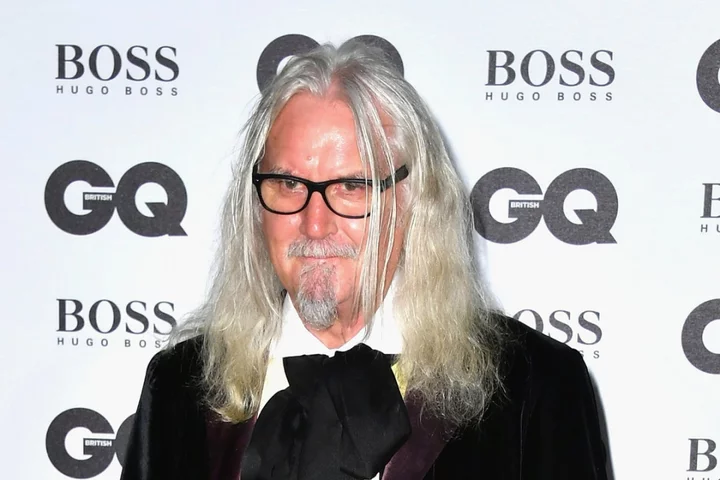
Billy Connolly says ‘cruel’ Parkinson’s disease has made it difficult to walk
Billy Connolly has shared updates on how Parkinson’s disease has had a greater effect on his physical abilities over time. The actor and comedian, 80, was diagnosed with Parkinson’s disease in 2013 and retired from his stand-up career in 2018 due to the illness. Parkinson’s is a brain disorder that causes unintended or uncontrollable movements, such as shaking, stiffness, and difficulty with balance and coordination. Often, the disease gets more severe over time. In an interview conducted by Connolly’s wife, the writer and psychologist Pamela Stephenson Connolly, the comedy figure gave insight into how his Parkinson’s disease has had a greater effect on his physical abilities. “It’s very difficult to see the progression exactly, because a lot of things come and go,” he began in the Guardian profile, published on Saturday (30 September). “Recently I’ve noticed a deterioration in my balance. That was never such a problem before, but in the last year that has come and it has stayed. For some reason, I thought it would go away, because a lot of symptoms have come and gone away… just to defy the symptom spotters.” He added that the shaking had reappeared, as well as “the inability to get out of certain types of chairs”. Stephenson added that balance had been the most significant factor to affect the star’s health, and had resulted in “a couple of serious falls”. “It’s funny, that fall I had when I landed on my jaw reminded me of a thing I used to do on stage,” Connolly replied. “I used to say: “I fell out of bed, but luckily my face broke my fall…” “It wasn’t so funny when you broke your hip,” Stephenson said in response. The What We Did on Our Holiday star noted that his declining ability to control his body movements is one factor “added to the list of things that hold me back”. “I feel like I want to go for a walk, but I go for 50 yards and I want to go home, because I’m tired. I’m being encroached upon by this disease. It’s creeping up behind me and stopping me doing things. It’s a cruel disease.” Elsewhere in the interview, the couple discussed the changes to their relationship as a result of his changing health. Connolly praised Stephenson for her ability to care for him. “It’s lovely. I found a new you. I found a new Pamela. And it’s worked out great. I never thought that you’d be able to look after me the way you do. “I thought it would annoy you terribly,” he continued. “You were such an independent “look after yourself” kind of person. But you’ve rallied round to looking after me. And it suits you great. And it sure suits me lovely.” Read More Lorraine Kelly shares the career advice she got from Billy Connolly Fred Sirieix shares details of medical procedures to ‘investigate’ recent blood tests David Beckham explains why he never sought therapy after 1998 World Cup match left him ‘depressed’ Fred Sirieix shares details of medical procedures to ‘investigate’ recent blood tests David Beckham explains why he never sought therapy after 1998 England match Climbing 5 flights of stairs a day could cut risk of heart disease, study suggests
2023-10-01 01:25
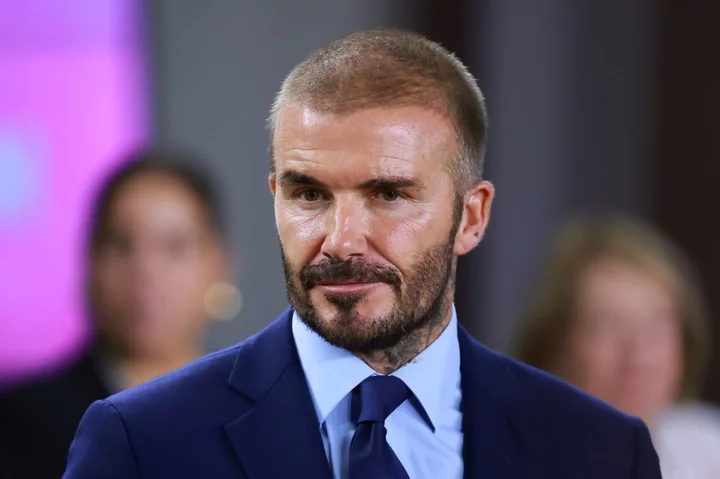
David Beckham explains why he never sought therapy after 1998 World Cup match left him ‘depressed’
David Beckham has explained why he never sought out therapy despite suffering from depression after his expulsion from an England game in 1998. The former Manchester United and Real Madrid footballer is one of the sport’s biggest-ever stars and is considered a national treasure to many. In 1998, however, Beckham was subject to widespread criticism after he received a red card during England’s World Cup match against Argentina. Beckham’s exit from the pitch was considered a major reason for the team losing the game and getting eliminated from the tournament. The footballer was met with a huge amount of public disdain, which included an effigy of him being hung outside a pub. The incident is covered in the athlete’s forthcoming Netflix documentary, Beckham, and includes his wife Victoria Beckham stating her belief that David was suffering from depression as a result of the public reaction. In a new interview with The Telegraph, Beckham agreed that he was depressed at the time, explaining that he did not feel as though he could acknowledge his mental health struggles openly. “It’s something I would never admit, because I was brought up by a dad who, if I said, ‘Dad, I’m feeling a bit low today,’ he’d have said, ‘Boy, get on with it,’” he said. “But I was [depressed]. I wasn’t eating, I wasn’t sleeping. I was living day to day thinking about what was coming next. People were saying I should leave the country. It was tough.” Beckham went on to say that he didn’t seek therapy at the time – and hasn’t sought it out in the years that followed – mostly due to his East End upbringing. “People have mentioned it, and I think therapy is a good idea – in this day and age you hear more about sports stars going to have therapy, and how much it helps. “But I was brought up in the East End of London. If I’d said to my dad, ‘I need therapy’, he’d have said, ‘What for?!’ So I put my head down and worked harder.” Beckham has been an advocate for mental health for many years. He first spoke out about his struggles with obsessive-compulsive disorder (OCD), a condition that causes a person to have obsessive thoughts and/or compulsive behaviours, in 2006. He speaks candidly about the condition in his documentary. In one scene, Beckham explains that he will spend hours tidying after his family go to bed. “I clean it so well, I’m not sure it’s actually appreciated so much by my wife, in all honesty,” he says. “The fact that when everyone’s in bed I then go around, clean the candles, turn the lights on to the right setting, make sure everywhere is tidy. I hate coming down in the morning and there’s cups and plates and, you know, bowls.” Beckham will be available on Netflix from Wednesday 4 October. Read More David Beckham shares secret to successful 24-year marriage to Victoria Beckham David Beckham kisses daughter Harper on the lips after previously defending displays of affection Victoria Beckham refutes claims she ‘stalked’ David Beckham before they met David Beckham shares secret to successful 24-year marriage to Victoria Beckham David Beckham kisses daughter on the lips after defending displays of affection Why are there no good celebrity couples anymore?
2023-09-30 21:28
